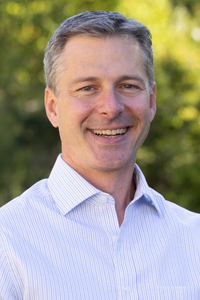Director’s Letter
2025 promises to be a big year for the Northern Illinois Center for Community Sustainability
Greetings from the Northern Illinois Center for Community Sustainability (NICCS). As I write this in February 2025, we eagerly await the Illinois Capital Development Board’s release of the bid package that will formally solicit proposals for the design and construction of the NICCS building. If you’re not familiar with the building’s current status, funds for construction have been released by the state and preliminary planning for facilities and content is completed. To be located west of the NIU Convocation Center, the building that the NIU community has been imagining for several years is finally set to become a reality.
We also continue to showcase the NIU community’s novel sustainability research and creation, much of which predates the idea of NICCS as a program. The many topics that NIU is advancing related to water resources, food systems, energy, and environmental adaptation include examining interrelationships among native prairie plants, groundwater and bison; predicting and assessing risk of large storms in the Midwest; understanding people’s perceptions and decisions related to climate adaptation; developing sustainable packaging and environmental measurement sensors; developing mechanisms for increasing energy efficiency; and further developing NIU’s successful Edible Campus program. It's an exciting time to be at NIU, where we’re shaping a sustainable future for Illinois.
There’s a sense of urgency underlying this work. Illinois might not have the hurricanes of the Gulf Coast or extreme heat of the Southwest, but weather-driven issues such as droughts, storms, fire and urban heat islands threaten our food and water supplies, economic stability and human health across northern Illinois. It becomes more apparent each year that the environmental conditions that we’ve developed around are changing. Communities will need to adapt to withstand amplified impacts and new challenges. NIU researchers and creators will continue to develop the foundation for adaptation across the region and NICCS will play a key role in connecting these innovations with communities and identify the next generation of innovation that the region needs.
2025 will be a big year for NICCS. As director, I will work to expand a presence that benefits NICCS researchers and creators, including graduate and undergraduate students. Opportunities to highlight NIU research and innovation abound, including major international conferences like the Sustainability Research and Innovation Congress that will be held in Chicago in June, as well as regional events at NIU like Earth Week, STEM Fest and the IIN Sustainability Research Conference. These can be keystone moments in the careers of undergraduate and graduate students interested in sustainability. NICCS will also help to grow new partnerships, including those with the energy efficiency company Trane and with the U.S. Geological Survey, both of which are interested in enhancing their presence on campus and can offer long-term opportunities to students.
NICCS is emerging as a hub for researchers and creators and for students whose work supports sustainability in northern Illinois and beyond. I encourage you to explore our website – especially the current NICCS research – and reach out if you would like more information or to get involved. Together, we can build a community to advance the sustainability needs of the present and the future.
Sincerely,
Matt Deitch, Ph.D.
Director, Northern Illinois Center for Community Sustainability
Associate Professor, Department of Earth, Atmosphere and Environment
Northern Illinois University

Contact Us
Matthew Deitch, Ph.D.
Director, Northern Illinois Center for Community Sustainability
mdeitch@niu.edu